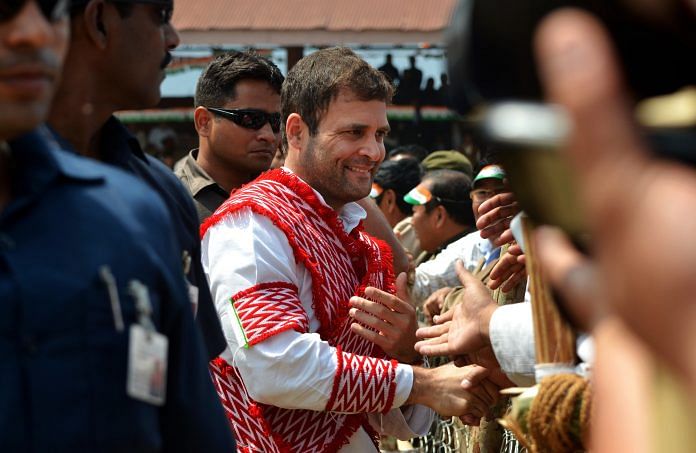NSCN’s poll boycott call ‘helped’ Congress sweep 53 seats in 1998; two decades later, the party is fielding only 18 candidates.
Dimapur: In February 1998, the streets of Dimapur wore a deserted look with only a few faint signs of the Nagaland assembly elections that were approaching. “The signs of elections are there only in the Congress office in Kohima,” the then Chief Election Officer had told India Today, describing the scene.
The Congress went on to sweep 53 seats in the 60-member state assembly, a feat that is said to have been made possible by the election boycott call by the separatist NSCN-IM.
Twenty years on, a similar poll boycott call by tribal organisations seeking an early solution to the Naga political problem, has failed to cut ice with political parties. But that’s not the only big change though.
The electoral fortunes of the Congress have shrunk so much that the party is able to field only 18 candidates – two less than the BJP which has 20 candidates while its ally, former chief minister Neiphiu Rio’s Nationalist Democratic People’s Party (NDPP), is contesting 40 seats.
The dip in Congress’ popularity is quite visible as one can see hoardings and newspaper ads carrying photos of two just leaders across the state: Prime Minister Narendra Modi and Rio, the CM candidate of the NDPP-BJP alliance.
The Congress has to contend with much smaller-size posters showing faces of Congress leaders Rahul and Sonia Gandhi along with state president K. Therie, pasted across the interior colonies in Dimapur.
Countering BJP’s march in the state
Lack of leadership and resources as well as a weak organisational structure have pushed the Congress to the brink in Nagaland. The party ruled Nagaland from 1993 to 2003 but has been out of power in the state since. Odisha Governor S.C. Jamir was the last Congress CM of Nagaland. In 2003, the Congress despite being the single largest party, was outnumbered by the Democratic Alliance of Nagaland formed by NPF, BJP and JDU.
In the 2013 assembly polls, the Congress bagged eight seats but all its MLAs deserted the party and joined other parties. Last month, veteran leader and former chief minister K.L. Chishi quit the party, citing “trust deficit”.
The party’s political strategies have since been found wanting. This time, it was one of the 11 organisations that had on 29 January signed a declaration seeking ‘solution before election’.
“We took the declaration at face value. We thought if there would be a solution, why not,” said AICC observer for Nagaland Pradyut Bordoloi, addressing a press conference in Dimapur Thursday.
“But we were not playing with the sentiments of the Naga people. Their (BJP and NDPP) original conspiracy was to have the absolute majority by keeping the political process at bay,” he added.
Far from discussing the Congress’ vision for Nagaland, Congress leaders present at the press conference chose to criticise the BJP and Modi’s much-publicised rally in Tuensang, more than 250 km from Dimapur.
The PM spoke about bringing an early solution to the Naga problem and vowed to fight corruption to ensure every penny of the central funds reaches villages.
Asked what political solution the Congress would offer to the Nagas, Bordoloi said, “I cannot tell you that if the Congress were in power, the solution would have happened. But we would have respected their aspirations within the framework of the Indian Constitution.”
Us versus Them
Congress candidate, Khekiye K. Sema, on the other hand, is critical of policies of all political parties, including his own party, indicating a clear lack of cohesion or even discipline.
“The government of India has been playing with the sentiments of the Nagas for more than 70 years,” said Sema, 66, who is contesting from the Ghaspani 2 constituency in Dimapur.
“Whether it’s the Congress or the BJP, the divide and rule policy has kept us weak, inciting fighting among ourselves.”



